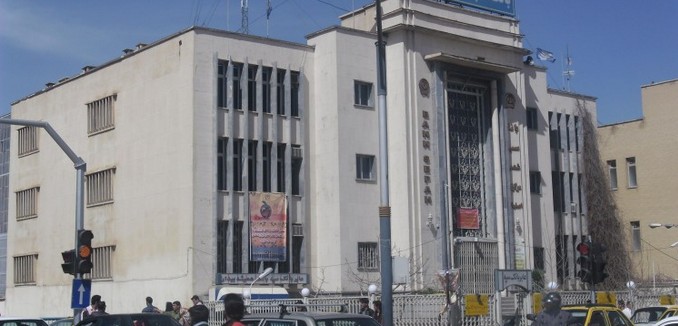The United States signed a secret agreement to lift United Nations sanctions on two Iranian banks that were designated for financing their country’s ballistic missile program on the same day that Tehran freed four American hostages, The Wall Street Journal reported on Thursday.
The Obama administration’s decision to delist Bank Sepah and Bank Sepah International was “part of a package of tightly scripted agreements,” according to the Journal, which committed the U.S. to pay Iran $1.7 billion and drop charges against 21 individuals for smuggling sensitive materials to the country, and Iran to release the imprisoned Americans. The three documents were signed by a top State Department official, Brett McGurk, and an Iranian government representative in Geneva on the morning of January 17. Hours later, different portions of the deal were implemented.
The White House informed Congress of the banks’ delisting earlier this month.
“Lifting the sanctions on Sepah was part of the package” that led to the release of the Americans, one Obama administration official told the Journal. “The timing of all this isn’t coincidental. Everything was linked to some degree.”
Top White House officials, including President Barack Obama, have previously affirmed that the U.S. would maintain sanctions on Iran for its support of terror, its ballistic missile program, and its human rights violations, despite the nuclear deal.
On August 15, 2015, Obama said that the U.S. would uphold “sanctions targeting Iran’s support for groups such as Hizballah, its destabilizing role in Yemen, its backing of the Assad regime, its missile program, and its human rights abuses at home.” In testimony before the Senate Foreign Relations Committee in July 23, 2016, Treasury Secretary Jack Lew said that the Obama administration would “continue to wield” sanctions imposed on Iran for “its active support for terrorism, its ballistic missiles program, destabilizing regional activities, and human rights abuses.” At the same hearing, Secretary of State John Kerry insisted that “U.S. sanctions related to human rights, terrorism, and ballistic missiles will remain in place.”
Despite these assurances, an Obama administration official told the Journal that lifting sanctions on Bank Sepah, one of Iran’s largest, and Bank Sepah International, which was critical to financing Iran’s international trade prior to the imposition of sanctions, was part of the U.S. commitment to grant Iran sanctions relief.
“By agreeing to remove U.N. and EU sanctions eight years early on Iran’s main missile financing bank, the administration effectively greenlighted their nuclear warhead-capable ballistic missile program,” Mark Dubowitz, executive director of the Foundation for Defense of Democracies, said in response to the news.
United Nations Security Council Resolution 2231, which codified the nuclear deal, calls on Iran “not to undertake any activity related to ballistic missiles designed to be capable of delivering nuclear weapons, including launches using such ballistic missile technology.” The resolution also says that Iran must abide by previous Security Council resolutions, which placed restrictions on ballistic missile work until 2023.
Since last summer’s nuclear deal, Iran has conducted at least ten ballistic missile tests, including one that was announced this week.
[Photo: caoi.ir ]




